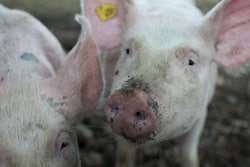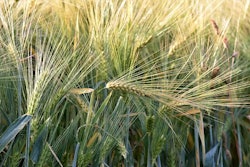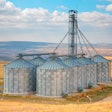Argentina Crop Conditions Stable
- Buenos Aires Grain Exchange reported corn crop ratings increased to 22% good to excellent from 17% last week, still below 35% last year.
- The exchange left its corn crop forecast unchanged at 45 million tonnes below the USDA’s 47.5 million and last year at 51 million.
- 23% of the first soy crop is mature compared to 43% average, while 74% is filling pods versus 85% average.
- No harvest progress was reported last week. Last year, 4.6% was harvested as of March 25.
- 66% of the late crop is forming pods versus 67% average and 27% are in pod fill compared to 34% average.
- Soybean crop conditions were stable at 6% good to excellent, but remain well behind 33% last year.
- BAGE left is soy crop projection unchanged at 44 million tonnes compared to 48.8 million last year and the USDA’s current forecast of 47.5 million.
- Optimum/favorable soil moisture ratings improved to 58% from 53% last week.
FBN’sTake OnWhat It Means:Over the last week, Argentina received rain across its main crop production areas, which will maintain a good environment for late-season corn and soybeans. However, the below normal precipitation since early February has likely caused damage to early fields and the rainfall will probably not increase the overall crop size.

China Looking for Feed Alternatives
- China's agriculture ministry is set to institute a plan to lower the amount of corn and soymeal in animal feed rations.
- Nutrition experts will come up with guidelines and are expected to submit plans by the end of this month.
- It’s not clear how much impact the guidelines will have as they are not expected to be binding.
- Customs data showed corn imports in the first two months of the year rose 400% to 4.8 million tonnes, and wheat and sorghum imports also increased.
- China has continued to buy US corn as exporters have reported sales of over 3 million tonnes to the country this week.
- Feed processors started to increase alternatives during the trade dispute in 2018 and have continued as prices increased last year.
- Imports of barley, white wheat, canola and rapeseed have also increased.
FBN’sTake OnWhat It Means:The move comes as China has increased its focus on food security after the coronavirus pandemic raised concerns about its dependence on imports and stability of supplies. It will be extremely difficult for China to ramp up the use of alternative feed supplies as they continue to rebuild and plan to expand livestock production. We expect China’s demand to remain strong into the coming year.
FBN Market Advisoryservices are offered by FBN BR LLC, dba FBN Brokerage, FBN BR and FBN Market Advisory (NFA ID: 0508695)
The risk of trading futures and options can be substantial and may not be suitable for all investors. Past performance is not necessarily indicative of future results.
This is not an offer or solicitation in any jurisdiction where we are not authorized to do business or where such offer or solicitation would be contrary to the local laws and regulations of that jurisdiction, including, but not limited to, persons residing in Australia and Canada.



















